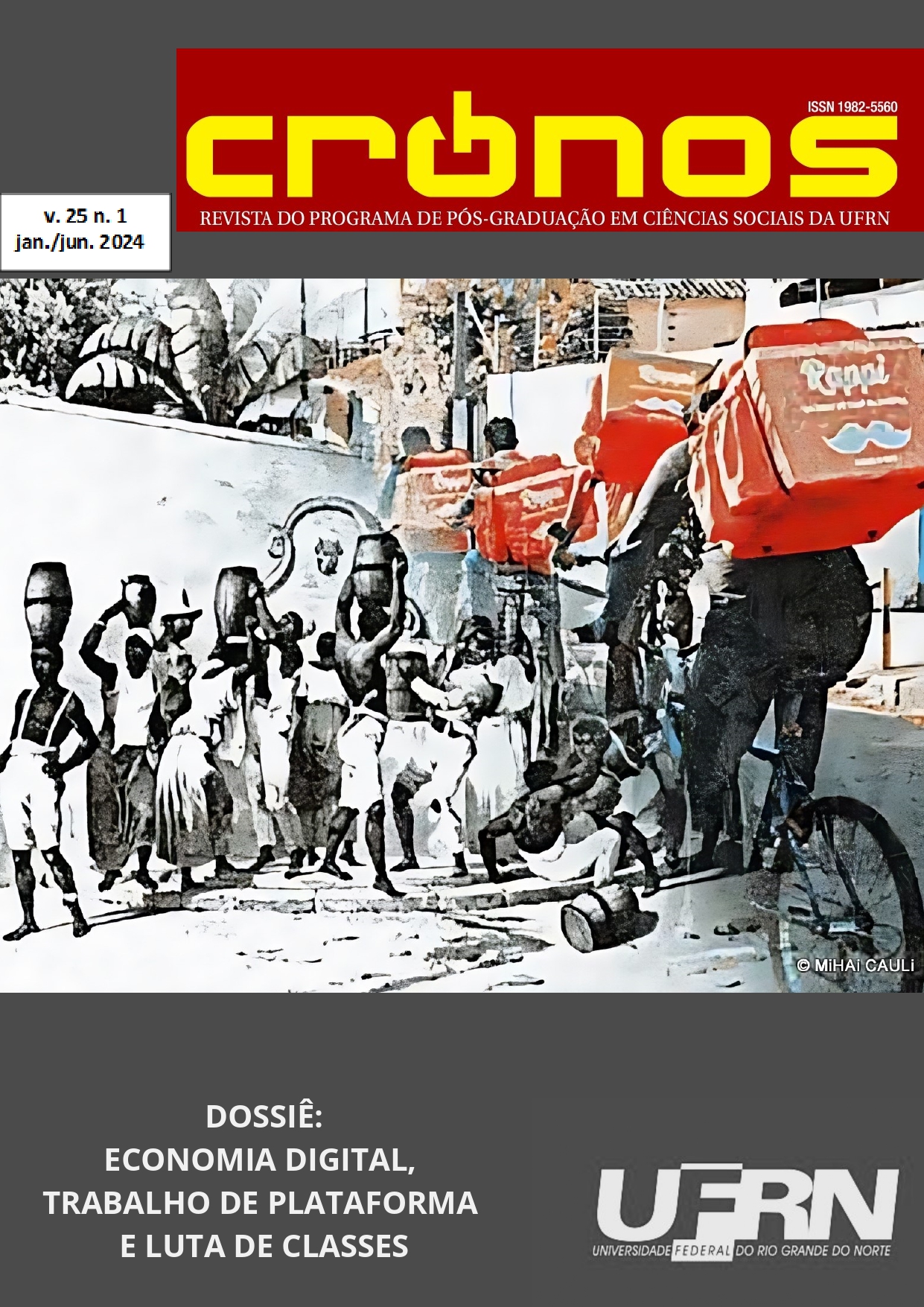THE IDEOLOGY OF SILICON VALLEY AND PLATFORMIZED WORK
DOI:
https://doi.org/10.21680/1982-5560.2024v25n1ID35393Keywords:
Bike boys, Digital economy, Ideology, Platformed work, Silicon ValleyAbstract
21st century capitalism erupts with a “digital economy”. This moment is marked by changes in the technical basis of capital and a set of other events arising from the structural crisis of the 1970s. The internet of things becomes the basis of digital business, with emphasis on platform companies. In this sense, Silicon Valley appears, in the social imagination, as a place of prosperity for bringing together the main technological companies and forging a new type of work that sells the idea of “the easy and different way of making money without having a boss”. The objective of the article is to answer the following questions: What does Silicon Valley represent in contemporary times? What elements and values gave sustainability to the development of the region and made it an icon of prosperity in the social imagination? What does Silicon Valley ideology hide when it comes to platformed work? What is the perception of platform workers in the city of Natal (RN) about their work? It appears that the values of autonomy and freedom stimulated by the ideology of Silicon Valley entrepreneurship are seductive, but the promises of acquiring quick income and social advancement have not come true; on the contrary, particularly for motorcycle couriers and delivery bike boys, taking the city of Natal as a reference, their living conditions have not changed qualitatively. Furthermore, it is identified that the autonomy and freedom promised by platform work need to be better problematized.
Downloads
Downloads
Published
How to Cite
Issue
Section
License
Copyright (c) 2024 Revista Cronos

This work is licensed under a Creative Commons Attribution-NonCommercial-ShareAlike 4.0 International License.


 English
English Español (España)
Español (España) Português (Brasil)
Português (Brasil)


